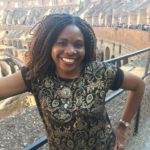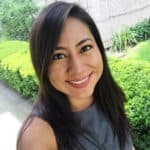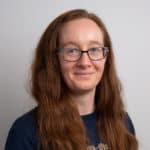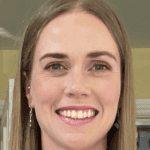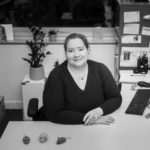Profile
Steve Briddon
-
About Me:
I’m a dad of three kids and a puppy. I study how medicines work (pharmacology) and teach medical and pharmacy students. I love travelling, taking photographs and being out walking with my dog, and spend a lot of time watching my kids play rugby and football!
-
Read more
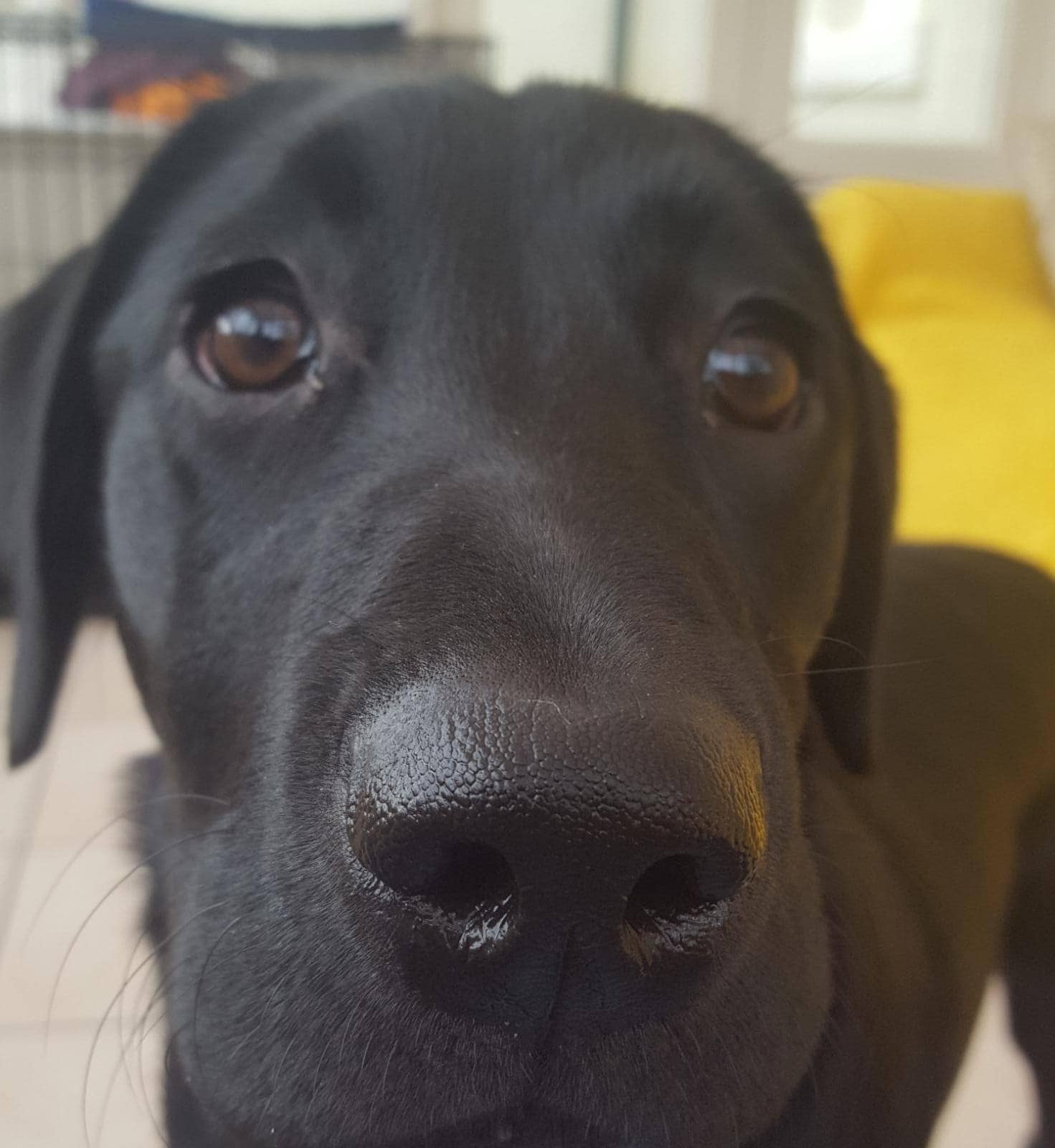 I live in the East Midlands, with my family and our labrador puppy, Harley. He’s loved having me at home for cuddles and walks during the lockdown.
I live in the East Midlands, with my family and our labrador puppy, Harley. He’s loved having me at home for cuddles and walks during the lockdown.I’m most known for embarrassing my colleagues and kids with my very bad puns and “dad jokes” as well as stating obscure facts and song lyrics (mostly from the 1980s).
I spend a lot of time walking with Harley and watching my kids play rugby and football (I’m a big fan of rugby and cricket fan).
My favourite thing to do (not involving Harley or my kids) is to take photographs. I like taking photos of all sorts of things from landscapes to buildings, but my favourite thing is to look for patterns in everyday things.
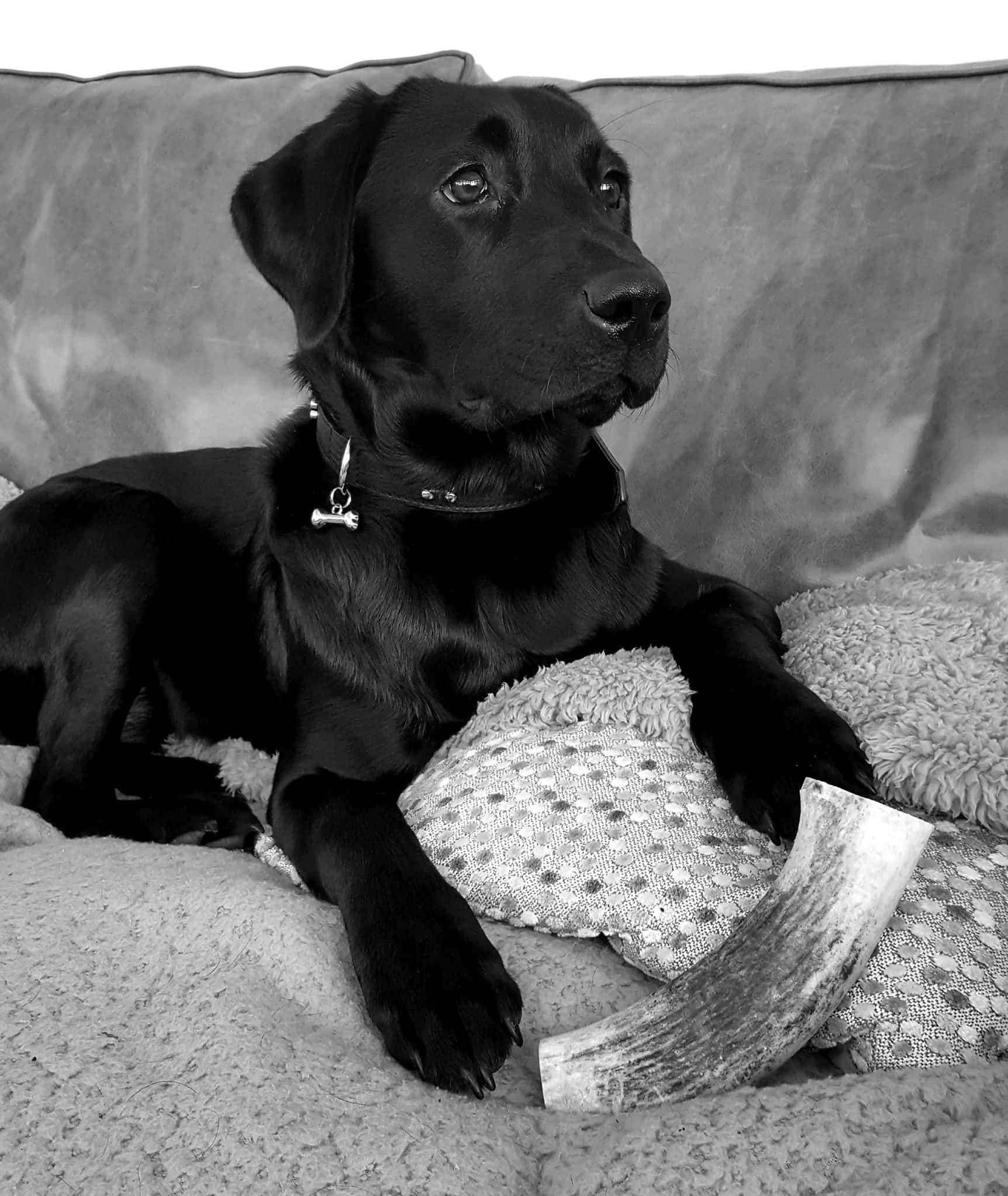
I love to travel and see new places and enjoy losing myself in a book – mostly about history – and particularly dark and middle ages. The Last Kingdom series about the Vikings and Saxons is my favourite.
-
Read more
I work at a University, where I do research and also teach Pharmacy and Medicine students.
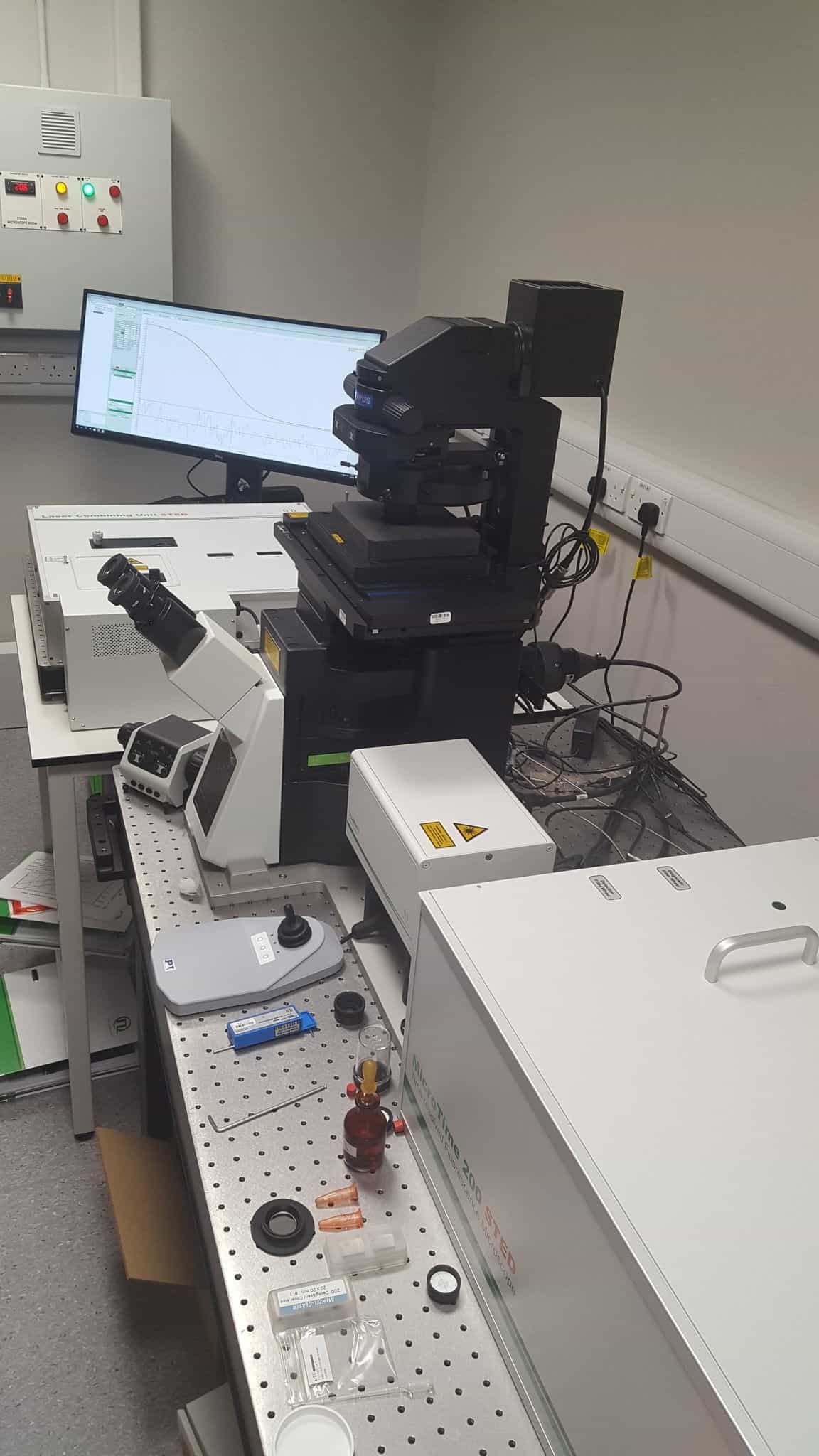 My area of research (molecular pharmacology) looks at how some medicines work and finding targets for new medicines which might have fewer side effects. We are interested in looking at where medicines go in a cell and how they affect the cell’s working. To do this we work with chemists to make medicines that glow in the dark when laser light is shone on them, then use special advanced microscopes to watch the medicines work on cells, often one molecule at a time.
My area of research (molecular pharmacology) looks at how some medicines work and finding targets for new medicines which might have fewer side effects. We are interested in looking at where medicines go in a cell and how they affect the cell’s working. To do this we work with chemists to make medicines that glow in the dark when laser light is shone on them, then use special advanced microscopes to watch the medicines work on cells, often one molecule at a time.So, to explain in a little more detail, imagine you turned away from your computer for a minute to find a tiger sat next to you – “Agghhhh!”. Think what would happen: your heart would start racing, you’d start taking fast deep breaths, your pupils would get wider and you’d run away (or may be just feed it cookies?). All of those things happen (not the cookies) because a chemical called adrenaline has “talked” to the different cells in your heart and lungs and told them what to do. It does this by sticking (pharmacologists call this “binding”) to special proteins on the outside of the cells called receptors. These receptors are designed specially to stick to adrenaline and pass on a signal inside the cells to tell them what to do. These receptors are called G protein-coupled receptors (known as GPCRs) and there are nearly 1000 different ones in the human body that are involved in nearly every process in the body – from how we see and taste, to controlling our emotions, heart, lungs right through to how we develop in the womb.
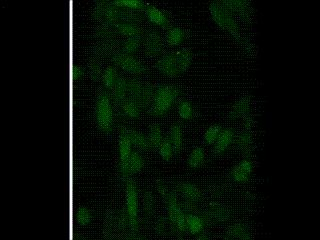
Lots of medicines and drugs we use also bind to GPCRs and either activate them directly (think the asthma drugs like salbutamol in the blue inhalers) or bind to the GPCR and block the messenger binding (think anti-histamines for hay fever). However, there is still a huge amount we don’t know about all the different GCPRs and how they work and lots of room for better, newer medicine which use these receptors.
My group is interested in how the receptors are organised in the cell, and whether where they are in the cell, and which other proteins they work with, changes how they bind the drugs. We can make versions of the drugs which have a special chemical attached that glows (we call it fluorescence) when lasers shine on it. This lets us see,
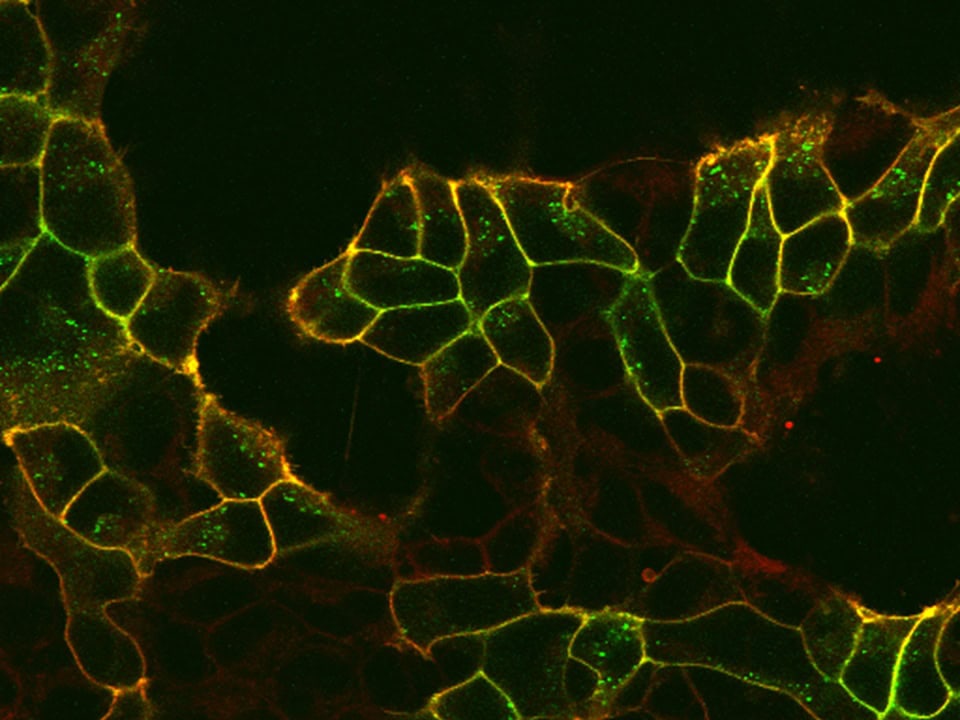
using special microscopes, where those drugs are in the cell and how they are affecting the cells. We can also do some work on the genes for the receptors to make the receptors themselves fluoresce so we can also watch how they behave. The microscopes are sensitive enough that we can do this with as little as one molecule of the receptor or drug at a time!
The more we can find out about how drugs bind to GPCRs and whether where the receptor is matters, the more likely we are to be able to make drugs which only bind to the receptors which we want to, and not stick to other targets which might lead to side effects.
-
My Typical Day:
First thing is always get ready and walk the dog! When I get to the lab, the first thing I do is ALWAYS, boot up my computer, say ‘Hi” to my colleagues and get a coffee. I’ve been a scientist for a long time now, so my job is more about managing our projects and planning than doing experiments. I spend the day meeting with my research group and looking at data, planning projects and solving problems. I’ll spend time at my computer talking to other scientists by email, writing our results into articles, or reading other scientists’ work to get ideas, and writing new projects. I might also go and mend a problem with a microscope or go to meetings where we all share our data and ideas. I often have to teach students as well. Home in the evening for dinner and more dog walking, and perhaps some taxi duty and a book!
-
Read more
Here are some photos of people in the group I work in. This is probably THE best thing about working in science. I LOVE chatting to other scientists, teaching people how to do science and working out new experiments and ideas between us. The most important thing in science today is to work as a team.
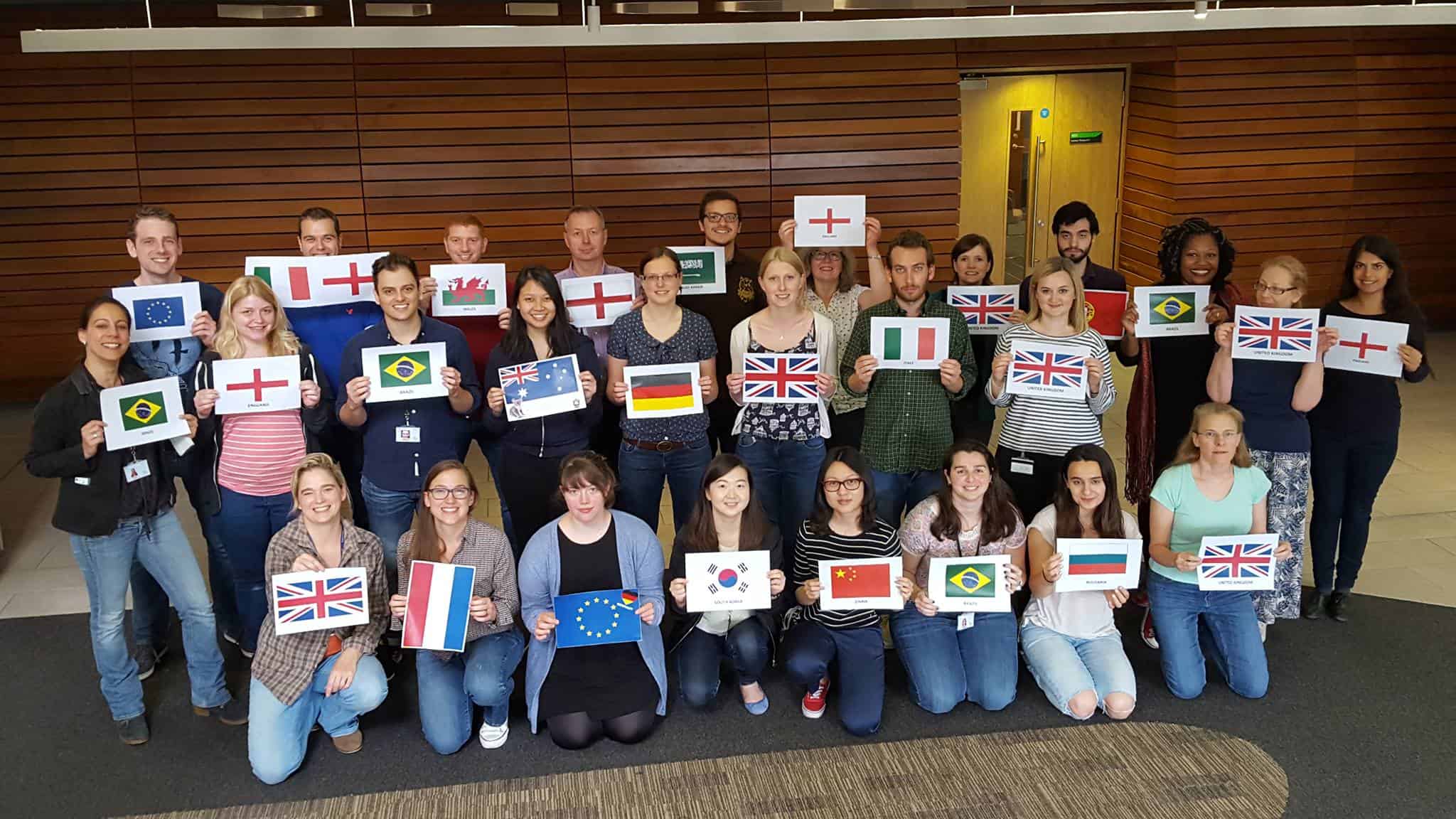
I hope you can see from the photos that you get to meet and work with many different sorts of people from all over the U.K. and the world. For
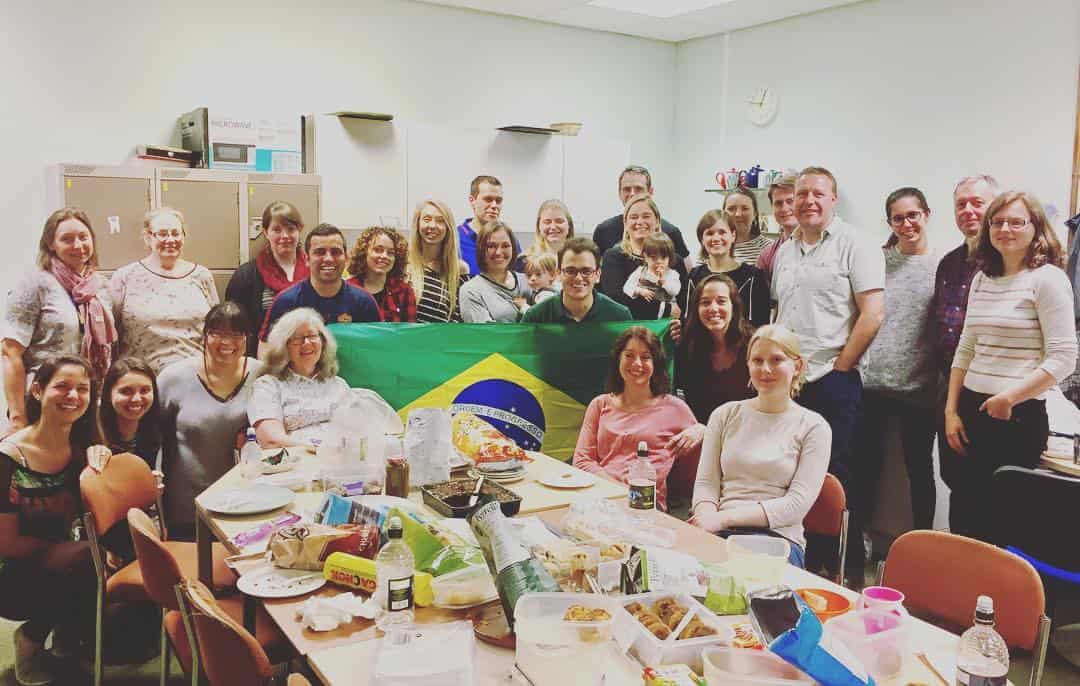 me, this is the best bit!
me, this is the best bit! -
What I'd do with the prize money:
We take small microscopes into schools and show pupils how they work and show them how fascinating the microscopic world is. I would use the money to buy some new equipment and samples so we could do this more easily and with better equipment.
-
Education:
Holymoorside Primary School
Chesterfield School
Aston University (BSc Pharmacy)
Oxford University (PhD Pharmacology) -
Qualifications:
O-levels (they were a bit like GCSEs!): Maths, Further Maths, Chemistry, Physics, English language, English literature, History, Geography, French, German, Religious Education
A-levels: Chemistry, Maths, Physics, General Studies
S-level: Chemistry
Undergraduate degree: BSc. Pharmacy
Postgraduate degree: DPhil. Clinical Pharmacology
Professional qualifications: GPhC (registered pharmacist) -
Work History:
At school:
– Hospital radio DJ
– Market stall assistant
– Paper boy
– Pharmacy Assistant
—————————————————-
After University
– Community Pharmacist
– Industrial Pharmacist
– PhD student
– Post-doctoral Research Fellow (University of Oxford)
– Chief Experimental Officer (University of Nottingham)
– Principal Research Fellow (University of Nottingham) -
Current Job:
I’m a Principal Research Fellow (Associate Professor) in the School of Life Sciences at the University of Nottingham
-
My Interview
-
How would you describe yourself in 3 words?
Pun-loving Pharmacologist
What did you want to be after you left school?
First an Airline pilot, then a pharmacist, then a research scientist
Were you ever in trouble at school?
Of course - mostly for talking too much!
Who is your favourite singer or band?
Crowded House or Counting Crows
What's your favourite food?
Cheese and Thai food (not together)
If you had 3 wishes for yourself what would they be? - be honest!
To know my children would always be safe, to be able to tour with a band and for time to slow down enough that I could live in every country in the world for a month
Tell us a joke.
What is E.T. short for? Because he has little legs.
-


